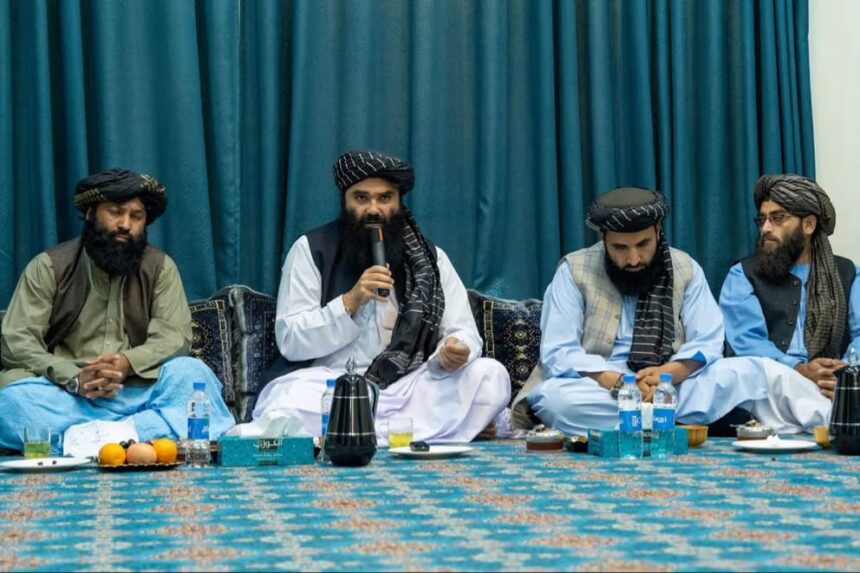RASC News Agency: Sirajuddin Haqqani, the acting Minister of Interior for the Taliban, has once again reiterated the need for “building trust” between the public and the regime an oft-repeated slogan that rings increasingly hollow in the face of the group’s authoritarian rule and brutal tactics. According to a statement released by the Taliban’s Ministry of Interior on Thursday, July 17, Haqqani met with several provincial Taliban officials in Kabul and urged them to adopt a “cordial approach” toward civilians to foster what he termed an atmosphere of mutual trust between the Taliban and the people.
Haqqani was quoted as saying, “The responsibilities we shoulder are heavy. Strengthening our relationship with the people lays the foundation for trust in the system.” He further encouraged Taliban members to take “sincere steps” to gain public support. In another familiar refrain, Haqqani called for what he described as the “reconstruction of the Islamic system,” asserting that the implementation of Sharia requires “devotion and tireless effort” from all officials, who must strive for the “dignity” of the regime. However, nearly four years after the Taliban’s violent return to power, the chasm between the group’s public rhetoric and its actual behavior continues to widen. While figures like Haqqani make calculated appeals to “public trust” and “service to the people,” a mounting body of evidence from international organizations, human rights defenders, and independent media paints a starkly different portrait one of systemic repression, mass intimidation, and flagrant violations of international law.
Under Taliban rule, Afghanistan has witnessed the systematic dismantling of civil liberties. This includes the silencing of the free press, arbitrary detention and torture of journalists, widespread disappearances of former security personnel, and the complete exclusion of women and girls from public life, education, and employment. These abuses are not isolated incidents; they form a pattern of authoritarian governance rooted in ideological rigidity and a thirst for unchecked control. It is this grim reality that has drawn the attention of international legal bodies. Leaders of the Taliban, including the head of the group and its chief justice, now face growing scrutiny from the International Criminal Court over allegations of crimes against humanity. Legal experts and political analysts stress that unless the Taliban relinquish their monopolistic grip on power, halt their repression of basic freedoms, and engage in meaningful, inclusive national dialogue, their calls for “trust-building” will remain nothing more than a cynical public relations ploy aimed at securing superficial legitimacy.
The gap between word and deed continues to define the Taliban’s rule. As long as oppression persists, trust cannot be built only coerced or fabricated. Afghanistan’s future, many argue, will remain hostage to authoritarianism unless accountability, justice, and democratic participation replace the Taliban’s performative governance.






